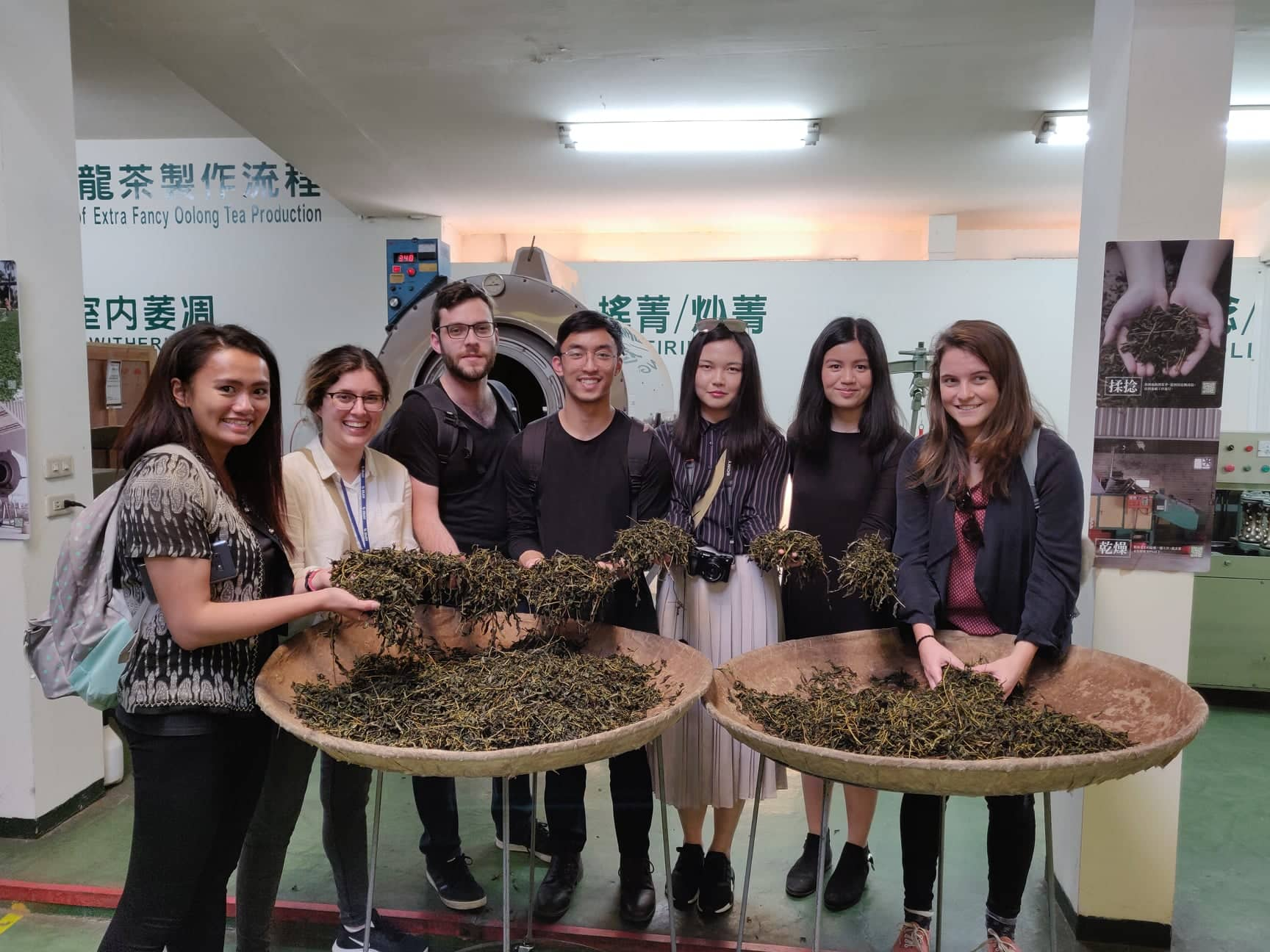“If we really want to be in a position to empower and strengthen our economic base, we need to leverage our connections with international peoples.”
So says Nathaniel Howe (Ngāti Wai, Te Whānau a Apanui, Ngāti Porou, Ngai Tahu), one of six recipients of the first North Asia CAPE Māori Business Scholarships. The awards took the scholars to Taipei City, where they spent three weeks in early 2018 studying at the respected National Taiwan University (NTU). The scholars devoted their time to learning Mandarin, establishing business networks, and exploring the many cultural, historical, and linguistic linkages between Māori and the indigenous people of the island of Taiwan.

In keeping with the North Asia CAPE’s focus on business outcomes Nathaniel, like his fellow scholars, sought to identify opportunities to grow business and entrepreneurial ties with Taipei. His efforts have already paid off: as the manager of Maimoa Music, Nathaniel is well-known for his commitment to producing original, contemporary Te Reo music to help revitalise the indigenous language of Aotearoa. He and his band have been invited to return to Taipei later this year for an indigenous music festival, where Nathaniel hopes not only to perform but also to explore how work here can become a template for rebuilding the indigenous languages of Taiwan.
“Cultural advantage is a competitive advantage in business,” says Nathaniel. “As Māori, we are recognised leaders in the realm of language revitalisation. We can share our skills, strategies, and experiences as models for others facing the same challenges.”
During a recent ceremony celebrating the scholars, Professor Jenny Dixon, Deputy Vice-Chancellor (Strategic Engagement) at the University of Auckland, said the inaugural cohort of North Asia CAPE Māori Business Scholars have already proven themselves outstanding ambassadors for the North Asia CAPE.
“We were confident that the learnings and outcomes of our scholars would be significant and would help contribute to the North Asia CAPE's goal of building business across cultures. Our confidence is well-founded,” said Professor Dixon.
Acknowledging the “awesome kaupapa” of the North Asia CAPE, the recipients spoke of the “life changing” impact the Māori Business Scholarships have already had on their lives. Sada Charlie (Waikato and Cook Islander) said her work as a policy analyst at Te Puni Kokiri has taken a new direction thanks to her experience in Taipei, with greater focus on international policy development and engagement. Ihipera Rimene-Sproat (Ngāti Kahungunu, Rangitāne, Ngāi Tahu) has committed to continuing her Mandarin courses here at the University, where she is completing a postgraduate diploma in Economic Business Policy. Te Karamihi o te aroha Harawira (Ngāti Awa, Ngāi Tai, Ngāi-te-rangi), who said her dream is to manage a hotel chain, has been offered a role in the hotel industry in Taipei; and Tyson Haeora Grootjans (Tūhoe) is determined to combine his skills as a commercial analyst and his masters in Indigenous Politics to help further international indigenous solidarity. Fiona Johnson-Bell (Tainui) is using her scholarship experiences to help inform the development of a national indigenous student mobility strategy for New Zealand university students.
As for Nathaniel, he says he’s identified a raft of potential business opportunities in Taipei - though he’s reluctant to give too much away at this early stage of his networking. He will say he was surprised to discover that almost every convenience store in Taipei stocks kumara. Given how good Māori are at growing kumara, Nathaniel posits, there is surely a business venture to explore.
“Even though our worlds seem very far apart, we are closer than we think,” says Nathaniel.

Watch the six Māori business scholars discuss their experiences
Listen to Nathaniel Howe speak with Dale Husband on Radio Waatea (8'23" interview in Te Reo, 26 February 2018)
Listen to Ihipera Rimene-Sproat and Tyson Grootjans speak with Dale Husband on Radio Waatea (12'22" interview in English, 28 February 2018)
Photo credit: Deborah Teh


